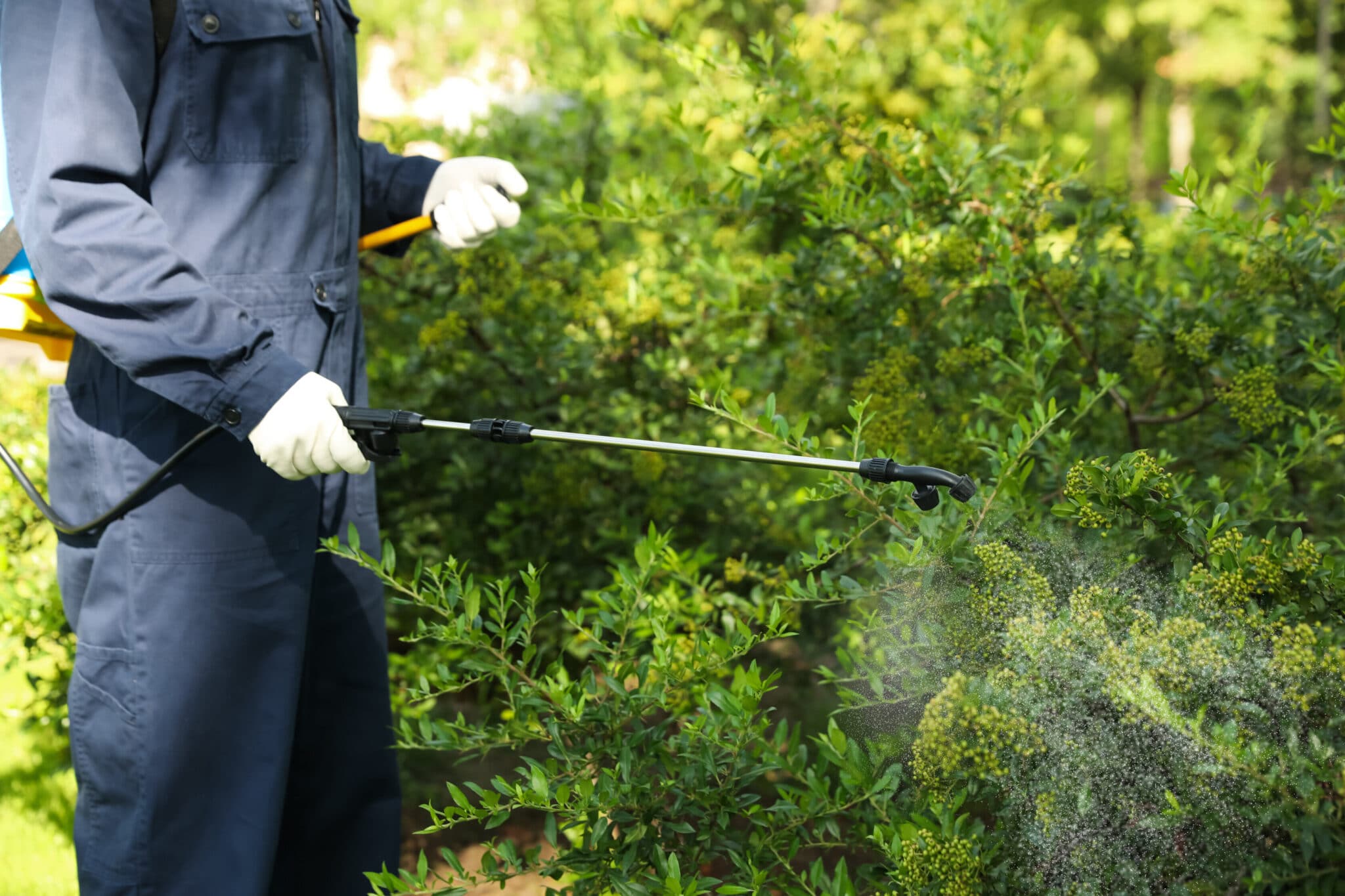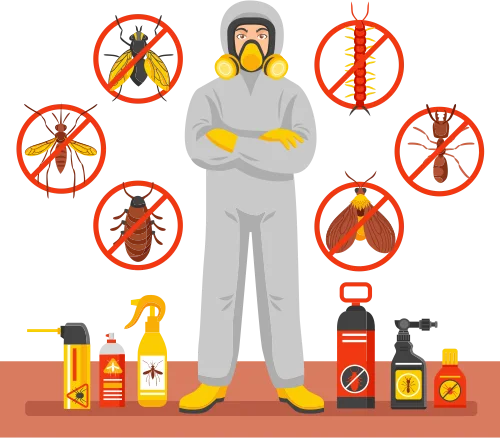Effective Coquitlam Pest Control Solutions for a Pest-Free Environment
Effective Coquitlam Pest Control Solutions for a Pest-Free Environment
Blog Article
Safe and Trustworthy Pest Control for Lasting Defense
Reliable bug administration needs a diverse technique that balances eco-friendly integrity with the need for reliable bug suppression. The subtleties of these methods may not be immediately clear, prompting a closer exam of the methods that can lead to sustainable bug control end results.
Understanding Parasite Control Methods
Parasite control includes a variety of techniques aimed at managing and getting rid of undesirable insects and rats that can endanger both health and residential property. Understanding these approaches is vital for effective insect administration.
The main categories of bug control approaches consist of mechanical, biological, and chemical methods. Mechanical techniques include physical barriers and traps to stop bug access and capture unwanted varieties. Using displays on windows or employing sticky traps can significantly reduce pest populaces without introducing unsafe materials - exterminator coquitlam.

Chemical insect control is frequently the most identified approach, using chemicals to get rid of insects. These chemicals can be efficient however need to be utilized with care to avoid damaging effects on non-target types and the atmosphere.
Benefits of Eco-Friendly Solutions
How can eco-friendly remedies change pest control practices? The adoption of environment-friendly bug control approaches uses numerous benefits, considerably enhancing the efficiency and safety and security of insect management.

Another benefit is the favorable influence on local biodiversity. Environmentally friendly options are made to target specific insects while protecting valuable insects and wild animals, advertising a well balanced ecological community. This technique aligns with the growing customer demand for sustainable methods, boosting the reputation of pest control carriers.
Integrated Parasite Management Approaches
The execution of eco-friendly solutions naturally leads to the adoption of Integrated Bug Administration (IPM) techniques, which additionally improve insect control efficacy. IPM is a holistic approach that combines numerous methods to take care of bug populations while reducing ecological effect. This technique emphasizes the usage of organic, cultural, mechanical, and chemical controls, guaranteeing a lasting and balanced method of parasite administration.
One essential aspect of IPM is the extensive evaluation of parasite task and ecological problems. By keeping track of insect populations and recognizing their life cycles, specialists can apply targeted treatments that interfere with the bug's habitat or lifecycle, lowering reliance on chemical pesticides. Additionally, social practices such as plant turning and habitat adjustment can substantially diminish bug establishment and recreation.
One more crucial part is using organic control agents, such as valuable bugs or microbes, which can naturally subdue insect populaces. When chemical applications are required, IPM focuses on using low-risk pesticides and applies them uniquely, reducing direct exposure to non-target organisms and people.
Including IPM strategies not only improves insect control performance but additionally advertises a safer ecosystem, aligning with the expanding need for sustainable methods in bug management.
Safe Practices for Property Owners
Comprehending the significance of risk-free techniques in pest control can empower house owners to properly manage parasite problems while guarding helpful hints their health and the environment. Carrying out safe techniques and safety nets is essential in lessening direct exposure to hazardous chemicals.
Property owners ought to first assess their atmosphere for problems that draw in insects, such as standing mess, water, and food waste. Routinely cleaning and securing entrance points can deter parasites from getting into the home. Utilizing all-natural deterrents, such as essential oils or diatomaceous planet, can give efficient alternatives to chemical pesticides.
When chemical therapies are required, homeowners ought to go with products that are specifically classified as safe for domestic usage. It is vital to comply with application standards thoroughly to avoid too much exposure. Moreover, using targeted therapies in areas where parasites are determined, instead than blanket splashing, can considerably reduce chemical use.
Lastly, keeping open communication with parasite control professionals is crucial. Homeowners ought to make inquiries about the security pest and termite of items used and demand environmentally friendly alternatives whenever possible. By embracing these risk-free techniques, property owners can develop a healthier living environment while successfully taking care of pest problems.

Tips for Long-Term Defense
Developing a pest administration method that highlights long-term protection can greatly enhance the efficiency of the risk-free methods formerly discussed. To accomplish this, house owners need to carry out regular inspections of their residential property, concentrating on hidden areas such as attics, basements, and crawl spaces. Early detection of insect activity is important in stopping invasions from taking hold.
These techniques minimize attractants that draw insects into the home. Securing entry factors, such as fractures around doors and home windows, can efficiently obstruct prospective insect accessibility.
Landscape design should additionally be thought about; keeping plants cut and maintaining a distance between vegetation and the home decreases concealing areas for parasites. Utilizing natural deterrents, such as vital oils or diatomaceous planet, can better prevent problems without considering rough chemicals.
Lastly, collaborating with a specialist insect control solution for routine assessments can provide an extra layer of security. These professionals can offer tailored recommendations and advanced treatments, guaranteeing that your home remains secured against pests in the long term.
Conclusion
To conclude, reliable and safe bug control needs a complex strategy that stresses environmentally friendly techniques and integrated pest administration. By implementing natural deterrents, carrying out normal evaluations, and keeping appropriate sanitation, residential or commercial property proprietors can substantially decrease insect populations while securing helpful bugs and the atmosphere. Cooperation with expert bug control solutions boosts the efficiency of these methods, making certain customized solutions that provide enduring defense and comfort against future invasions.
Reliable bug administration requires a complex technique that stabilizes ecological honesty with the requirement for reliable parasite suppression. The adoption of eco-friendly insect control techniques provides various advantages, substantially boosting the effectiveness and safety and security of pest monitoring.The implementation of environmentally friendly remedies normally leads to godrej pest control the adoption of Integrated Bug Monitoring (IPM) methods, which even more improve pest control efficacy. exterminator coquitlam. By monitoring pest populaces and recognizing their life cycles, specialists can implement targeted treatments that interfere with the insect's environment or lifecycle, reducing dependence on chemical pesticides.In conclusion, reputable and secure pest control requires a diverse method that stresses eco-friendly methods and incorporated pest management
Report this page